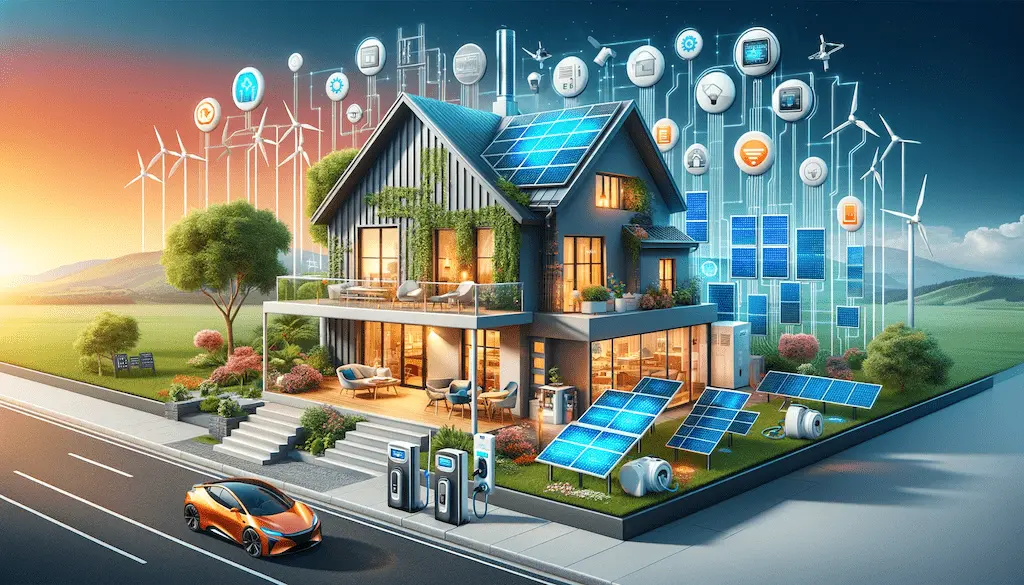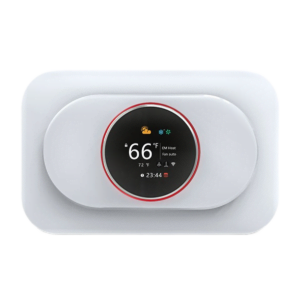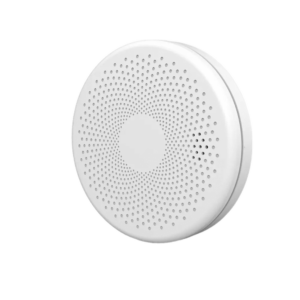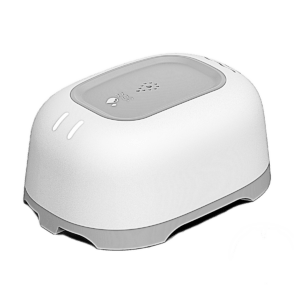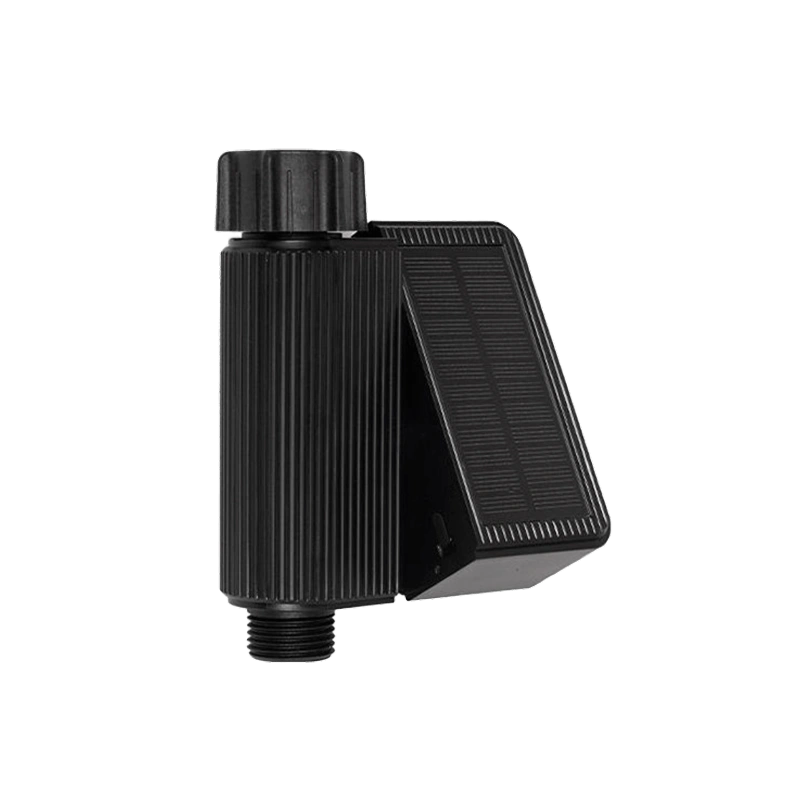Introduction
The global shift towards sustainable living has propelled homeowners to embrace renewable energy technologies at an unprecedented rate. Solar panels, heat pumps, electric vehicle (EV) charging stations, and energy storage batteries are not just symbols of this green revolution; they are practical tools in the fight against climate change. However, the potential of these technologies is fully unleashed when paired with smart metering systems. This comprehensive dive into smart metering reveals how it is transforming the landscape of home energy management, enabling meticulous analysis, tracking, and optimization of energy consumption and generation for unparalleled efficiency and financial gain.
The Advent of Smart Metering in Renewable Energy
Smart metering systems stand at the forefront of the renewable energy revolution, offering homeowners the ability to gain detailed insights into their energy use and production in real-time. This granular visibility is a game-changer, allowing for the precise management of energy flows within the home. With smart meters, individuals can monitor their renewable energy generation from solar panels or wind turbines, understand their consumption patterns, and make informed decisions to optimize energy use. This level of control is pivotal in reducing waste, maximizing efficiency, and enhancing the financial benefits of renewable energy investments.
Solar Power Optimization
The sun is a powerful source of clean, renewable energy, but harnessing its full potential requires intelligent management due to its variable nature. Smart meters are indispensable in this context, offering real-time data on the energy generated by solar panels versus the household’s energy needs. This information allows homeowners to strategically use solar power during peak generation times, store excess energy for later use, or even sell surplus electricity back to the grid. Moreover, smart metering facilitates decisions on when to use high-consumption appliances, optimizing the solar energy available and contributing to significant cost savings and reduced reliance on non-renewable energy sources.
Enhancing Heat Pump Efficiency
Heat pumps are celebrated for their efficiency in heating and cooling homes. However, their performance can be elevated to new heights with the integration of smart metering. By providing detailed data on energy consumption and operational times, smart meters enable homeowners to fine-tune their heat pumps' settings. Adjusting operations to coincide with off-peak electricity hours or to respond to real-time energy costs can lead to enhanced efficiency and substantial savings, all without compromising on home comfort.
Intelligent EV Charging: Revolutionizing Electric Mobility
As electric vehicles (EVs) become increasingly popular, the need for efficient charging solutions has never been greater. Smart metering transforms the EV charging experience, making it an integral part of the home energy ecosystem. Through intelligent scheduling, smart meters enable homeowners to charge their EVs during off-peak hours, leveraging lower electricity rates or surplus renewable energy generated on-site. This not only reduces the cost of EV ownership but also maximizes the use of clean energy.
Moreover, with the advent of vehicle-to-grid (V2G) technology, EVs are not just consumers of energy but also potential sources. During peak demand, EVs can feed stored energy back into the home or grid, acting as mobile energy storage units. This capability, facilitated by smart metering, enhances energy flexibility and can provide financial benefits through demand response programs.
Synergy with Battery Storage: Maximizing Renewable Energy Use
Energy storage systems, particularly batteries, are pivotal in the renewable energy ecosystem, allowing for the storage of excess power for later use. Smart meters elevate the utility of these storage solutions by optimizing the charge and discharge cycles based on real-time energy consumption patterns, prices, and grid demand. This strategic management ensures that stored energy is used at the most beneficial times, potentially lowering energy bills and even generating income by selling energy back to the grid at peak prices.
The integration of smart metering with battery storage systems is a cornerstone of modern energy management, providing the flexibility to use stored energy during high-cost peak periods or when renewable energy generation is low. This not only enhances household energy independence but also contributes to the stabilization of the grid by reducing peak load demands.
Realizing Financial Benefits
The financial implications of integrating smart metering with renewable energy technologies extend beyond mere savings on utility bills. By enabling precise control and optimization of energy consumption and generation, homeowners can tap into new revenue streams. Participation in net metering programs, where excess energy is sold back to the grid, offers a direct financial return on the investment in renewable energy systems. Similarly, smart meters facilitate participation in dynamic pricing and demand response programs, where utilities offer incentives for reducing consumption or supplying energy during peak periods.
The financial benefits are twofold: reducing operational costs through efficient energy use and generating income through strategic energy sales and participation in utility incentive programs. This dual financial advantage underscores the value of smart metering as an essential tool in the renewable energy landscape, making sustainable living not only environmentally friendly but also economically rewarding.
Environmental Impacts of Smart Metering Integration
The integration of smart metering with renewable energy sources holds profound implications for environmental sustainability. By optimizing energy consumption and reducing dependence on fossil fuels, smart metering contributes significantly to lowering household carbon footprints. The ability to monitor and adjust energy usage in real-time, coupled with the strategic charging and discharging of battery storage, ensures that renewable resources are utilized to their fullest extent, minimizing waste and enhancing the overall efficiency of the energy system.
Furthermore, the widespread adoption of smart metering technologies encourages the development of a more resilient and sustainable energy grid. By facilitating greater use of renewable energy and enabling households to contribute back to the grid, smart metering plays a critical role in the transition towards a decentralized energy model. This shift not only reduces the environmental impact of energy production but also enhances energy security and independence on a broader scale.
Enhancing User Experience with Smart Metering
The advent of smart metering has transformed the user experience in managing home energy systems. Homeowners now have unprecedented access to their energy data, allowing for a more proactive and informed approach to energy management. The user-friendly interfaces of smart metering apps provide insights into energy consumption patterns, cost-saving opportunities, and environmental impacts, empowering users to make changes that align with their financial and ecological goals.
The convenience of receiving alerts and recommendations, automating energy-saving adjustments, and even remotely controlling home energy systems has significantly improved user engagement and satisfaction. This level of interaction not only demystifies energy management but also fosters a sense of control and accomplishment among homeowners striving for a more sustainable lifestyle.
The Future Outlook: Innovations in Smart Metering and Renewable Energy
Looking to the future, the potential for innovation in smart metering and its integration with renewable energy sources is vast. Advances in artificial intelligence and machine learning are expected to further refine the accuracy of energy consumption predictions, automate optimization processes, and personalize energy management strategies. The development of more sophisticated sensors and IoT devices will enhance the granularity and reliability of energy data, opening up new avenues for energy conservation and efficiency improvements.
Moreover, the evolution of smart grids, equipped with advanced smart metering infrastructure, will facilitate more dynamic interaction between renewable energy producers and consumers. This will likely include more flexible pricing models, enhanced grid stability mechanisms, and increased opportunities for homeowners to participate in energy markets.
The continuous improvement of battery storage technologies, alongside innovations in renewable energy generation, promises to enhance the viability and attractiveness of sustainable energy solutions. As these technologies mature, the role of smart metering in managing and optimizing these systems will become increasingly critical, paving the way for a future where renewable energy is not only accessible but also the most economically and environmentally prudent choice for homeowners.
Conclusion
Smart metering stands at the intersection of technology and sustainability, offering a powerful tool for homeowners to navigate the complexities of modern energy management. By enabling precise control over energy consumption and generation, smart metering facilitates a shift towards more sustainable, efficient, and financially rewarding energy practices. As we look towards a future characterized by rapid technological advancements and growing environmental consciousness, the integration of smart metering with renewable energy sources represents a promising pathway to achieving energy independence and sustainability.
Embracing smart metering is more than a step towards optimizing home energy use; it's a leap towards a cleaner, greener, and more sustainable future. As technology continues to evolve, the potential for smart metering to revolutionize energy management and contribute to global sustainability goals becomes increasingly clear, heralding a new era of intelligent energy solutions for homeowners worldwide.
